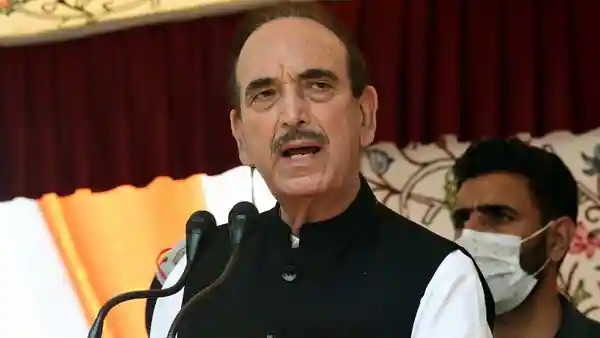Ghulam Nabi Azad Defends Article 370 Abrogation, Calls Opponents Ignorant of J&K’s Reality
TEN NEWS NETWORK
New Delhi, August 7, 2023: In the midst of the Supreme Court hearings challenging the constitutional validity of the Centre’s decision to abrogate Article 370 on August 5, 2019, former Jammu and Kashmir chief minister and Democratic Progressive Azad Party chief, Ghulam Nabi Azad, has come forward to assert that those opposing the move lack a comprehensive understanding of the Union territory’s history and geography.
As the nation marked the fourth anniversary of this momentous decision, the Bharatiya Janata Party (BJP) celebrated the transformation of Kashmir into an era of peace, development, and prosperity since the revocation of Article 370.
In Doda, Ghulam Nabi Azad took a veiled swipe at regional parties, refraining from naming them directly. “Those who are opposing (the revocation of Article 370 in Supreme Court) are ignorant of the situation on the ground, as well as the history and geography of Jammu and Kashmir. Article 370 was not meant for any particular area, province, or religion but was equally beneficial to all,” stated the former Congress leader.
Demonstrating his unwavering faith in the Supreme Court, Azad expressed confidence that the court would thoroughly examine all aspects of the abrogation move.
Meanwhile, the BJP’s official release lauded the abrogation of Article 370, attributing it to bringing forth a new era of peace, development, and prosperity in Jammu and Kashmir.
On the anniversary date of August 5, former chief minister and People’s Democratic Party (PDP) chief, Mehbooba Mufti, claimed that she and other senior party leaders were placed under “house arrest.”
The Supreme Court’s five-judge Constitution bench, led by Chief Justice of India DY Chandrachud, raised pertinent questions during the hearings. They inquired how a provision like Article 370, initially stated as temporary in the Constitution, could transform into a permanent feature after the Jammu and Kashmir Constituent Assembly’s tenure concluded in 1957.
The bench also highlighted that Parliament could not have declared itself the legislature of Jammu and Kashmir to facilitate the abrogation, as Article 354 of the Constitution does not authorize such an exercise of power.
As the court deliberates on this pivotal issue, the significance of Article 370’s abrogation remains a contentious matter, impacting the socio-political landscape of the region.



